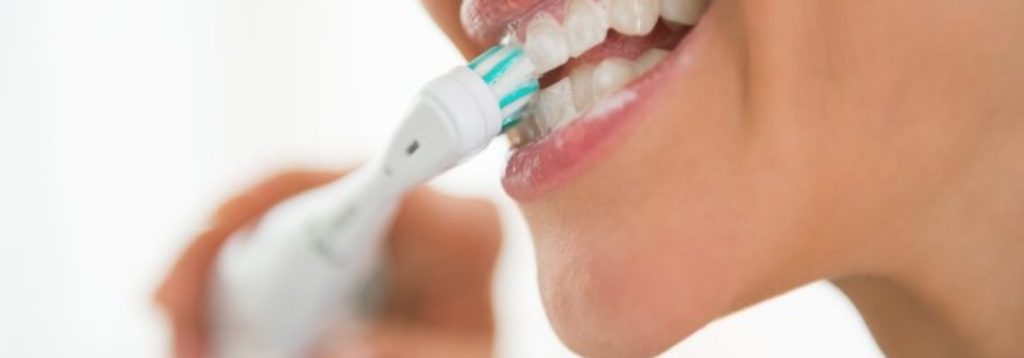As Happy Valley dentists of choice our team at Clackamas Smiles want all of our patients to enjoy a happy holiday and to start off the new year with a great looking smile. If you’re looking for one last stocking stuffer, we’d suggest you give the gift of better oral health by including a toothbrush in those holiday wrappings.
However, you might be wondering whether it’s worth the additional expense to give an electric toothbrush. After all, does using an electric toothbrush actually make a difference and are they any more effective than a manual toothbrush? Well, let’s start by saying that using either type of toothbrush can make a significant difference to your long-term oral health.
A toothbrush plays a vital role in helping to remove food particles and harmful oral bacteria from the surface of your teeth and along the gum line. When these substances are allowed to remain in place, they form into a sticky biofilm known as plaque. Plaque is notorious for transforming the sugars we consume into acids that slowly erode away tooth enamel and inflame gum tissue, directly increasing our risk of tooth decay and gum disease. Without proper treatment or care from our Happy Valley dentists, tooth decay and gum disease can lead to a variety of oral and overall health problems, including tooth loss.
Fortunately, when you brush regularly with a toothpaste that contains fluoride you help to harden the outer layer or your teeth, known as enamel, while also making your teeth less susceptible to the effects of decay. Using either a manual or an electric toothbrush can help keep your mouth clean and healthy, it just depends on the level of effort you want to put forth.
The Electric Advantage
While most studies will say that using an electric toothbrush provides a slight advantage when compared to brushing with a manual toothbrush, the difference is actually fairly small.
Take for example a 2014 review published in the Cochrane Library that examined 51 randomized controlled trials that involved either kids or adults brushing with manual or electric toothbrushes for at least a four-week period. In total, electric toothbrushes seemed to provide the user a slight edge as, “there was an 11 percent reduction in plaque at one to three months of use, and a 21 percent reduction in plaque when assessed after three months of use,” wrote the study’s authors. “For gingivitis, there was a six percent reduction at one to three months of use and an 11 percent reduction when assessed after three months of use.”
While this may seem to provide more than just a slight edge to using an electric toothbrush, the authors also noted that “the evidence relating to plaque and gingivitis was considered to be of moderate quality.” So while these numbers might suggest that buying an electric toothbrush is the way to go, experts actually say that this low of a difference in percentage doesn’t actually mean as much as you’d probably believe.
Where an electric toothbrush does have an advantage is in the way it brushes your teeth. When researchers say that using an electric toothbrush provides only a minimal advantage, they’re assuming that those using a manual brush are using the correct brushing technique. Electric brushes are designed to mimic the correct circular motion we all should use when brushing rather than the straight back and forth or up and down motion most commonly used.
While you can certainly train yourself on using the proper brushing technique, a lifetime of using a less effective method can be hard to break.
Combined, using an electric toothbrush offers slightly cleaner teeth while ensuring that you always brush using the right technique. That might just make switching to an electric toothbrush a worthwhile idea and a perfect stocking stuffer after all.

